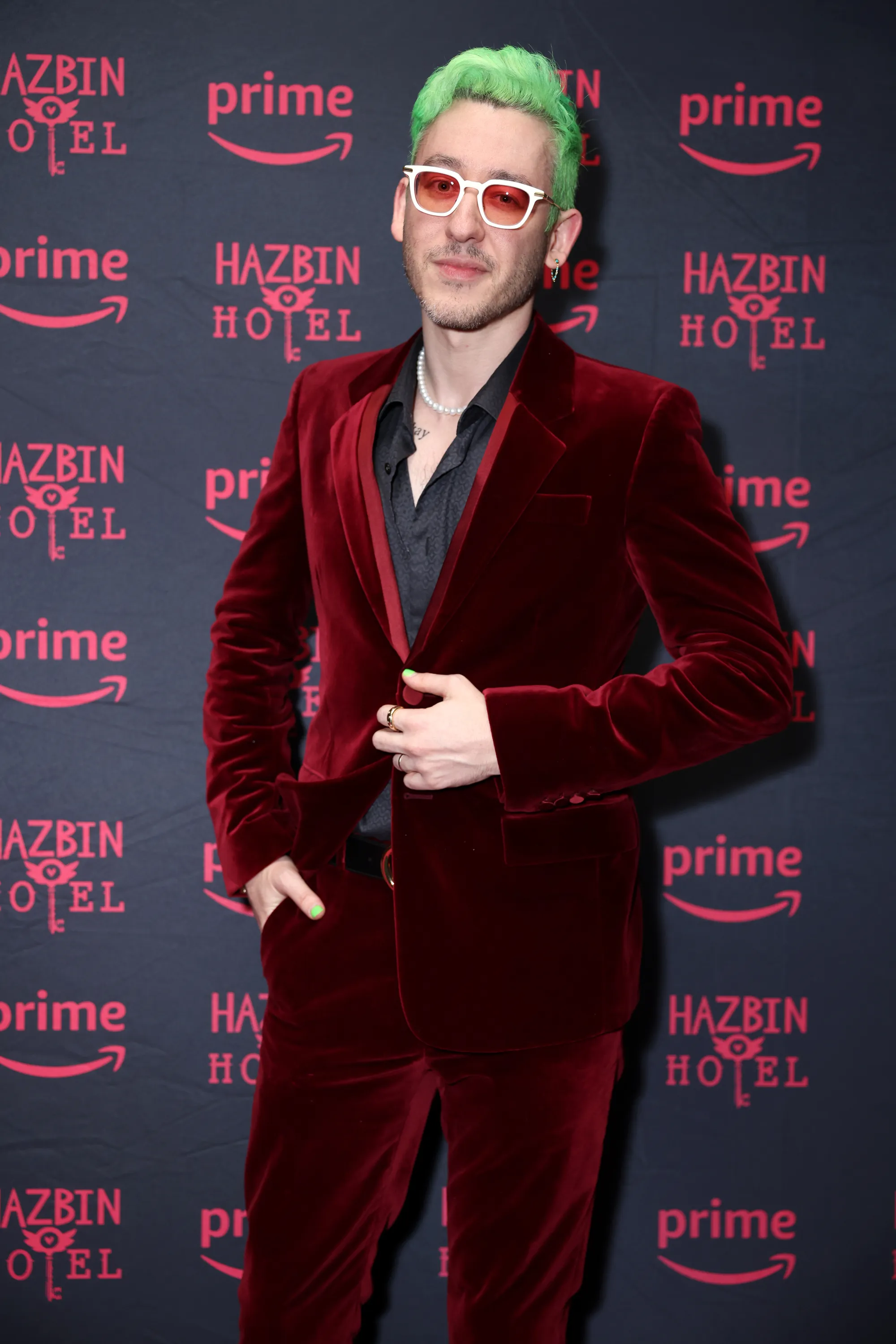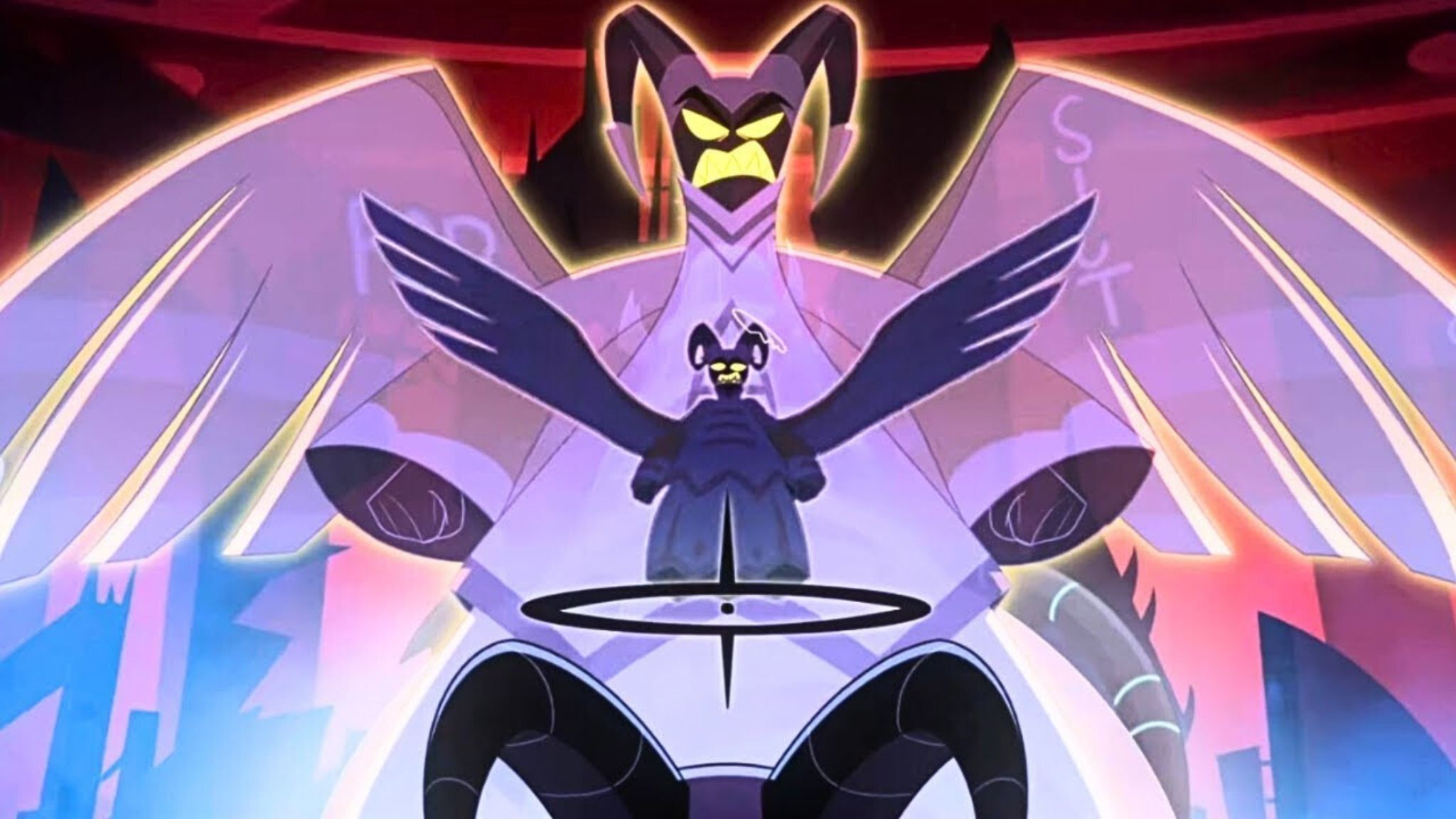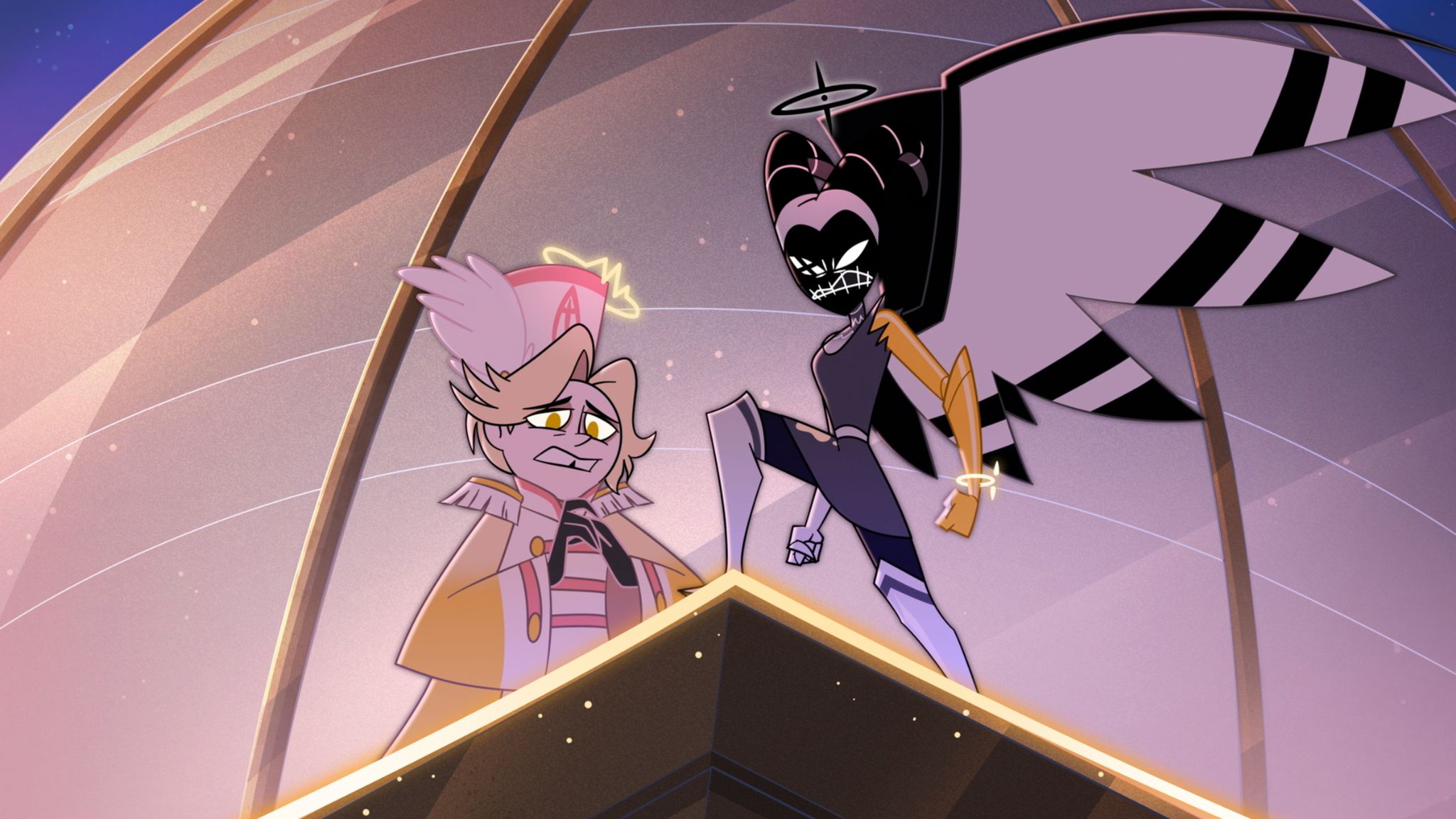
The second season of Hazbin Hotel featured a surprisingly perfect musical collaboration: Broadway star Jessica Vosk and Fall Out Boy’s lead singer, Patrick Stump. Composers Sam Haft and Andrew Underberg masterfully blended their distinct styles. Getting Stump to voice the character of Abel was a huge accomplishment for the season. Haft and his team were determined to do justice to both the character and Stump’s impressive musical legacy, creating a song that truly honored his career.
Sam Haft recently shared how challenging it was to write the musical highlights for Abel, making sure they sounded like Fall Out Boy while still fitting the show’s intense and dramatic mood.
Haft thoroughly explored the show’s musical secrets, including connections to emo music and the careful reasoning behind every artistic choice. This included everything from the harmonies in Alex Brightman’s songs as Adam to the significance of Abel’s first curse word on screen.
Landing Patrick Stump as Abel Was a Delightful Surprise
Getting Patrick Stump to voice Abel, the son of the flawed Adam, was a huge win for the second season of Hazbin Hotel. Composer Sam Haft called it a dream come true – the kind of perfect casting that’s rare in animation. He explained that while creators often have ideal actors in mind for roles, actually getting them on board is usually very difficult.
Haft explained that when creating characters, people often envision an ideal actor for the part. However, it rarely happens that the perfect person actually gets cast. He believes Hazbin Hotel has been exceptionally fortunate in consistently finding actors who truly embody their roles, and Patrick Stump is a prime example of this success.
The thrill of getting Stump, with his famous voice and musical history, quickly turned into a lot of pressure. Haft was writing a song, “When I Think About the Future,” that would feature Stump singing with Broadway star Jessica Vosk in a new version of their song “Gravity.” Bringing these two together was difficult, making the whole writing process feel incredibly challenging.
Haft emphasized the importance of truly capturing Patrick Stump’s unique artistry. The music needed to acknowledge his impact on pop music and feel consistent with the style of Fall Out Boy. Ultimately, Haft believed the song’s success would be determined by how fans reacted – he and Underberg aimed to create something that felt authentically Stump, while also resonating with Fall Out Boy’s established sound and his vocal style.
Haft explained they aimed for a sound that fit the universe of Hazbin Hotel, something you could enjoy right after listening to Fall Out Boy.
The incredibly positive response proved how successful they were. Haft noticed many fans wondering if Patrick Stump of Fall Out Boy actually helped write a particular section, or if the band played the guitars and drums – a testament to the care Haft and Underberg took to capture the band’s style while still fitting it into the world of Hazbin Hotel. Haft explained that Stump’s contributions were a deliberate and detailed tribute. This effort clearly worked; both the duet of “Gravity” with Vosk and Abel’s solo in “Hear My Hope” quickly became viral hits, instantly resonating with fans due to their authentic Fall Out Boy sound seamlessly integrated into the Hellaverse.
Fall Out Boy’s Pop-Punk Sound Shares DNA With Musical Theater

The unique combination of pop-punk and the style of Hazbin Hotel isn’t a coincidence—it reflects the inherently dramatic quality of Fall Out Boy’s music. Haft pointed out a clear connection between the band’s overall look and the feel of musical theater, observing that emo music and stage productions actually share a lot of common ground.
As a longtime fan, I’ve always been struck by how theatrical Fall Out Boy is. Seriously, growing up with their music, I was blown away by the storytelling woven into every song. It really hit me while thinking about this project – Fall Out Boy isn’t that far removed from musical theater! I’d describe them as pop-punk emo for theater kids, and I think a lot of us who came of age in the early 2000s would agree.
It’s no surprise Fall Out Boy’s music blends so well with Broadway—Patrick Stump is an exceptionally talented vocalist. As Haft noted, Stump possesses the vocal technique and skill you’d expect from a seasoned Broadway performer, even beyond his pop-punk style.
According to Haft, Patrick Stump is an exceptionally skilled singer with impressive vocal control and a beautiful vibrato. He believes Stump could easily transition to Broadway if he wanted to. Haft felt confident writing music for Stump at the same level as the experienced Broadway cast of Hazbin – including stars like Jeremy Jordan and Alex Brightman – because Stump possesses the vocal range and precision to not just perform, but truly shine with the show’s challenging music.
Abel’s Moment of Bravery Came From an Echo of His Father

A particularly moving scene in “Hear My Hope” occurs during Abel’s solo when he begins to assert himself as a leader. As he confronts Lute, subtle harmonies reminiscent of his father are introduced by Haft. This wasn’t just a musical touch; it powerfully illustrated Abel’s yearning to emulate his father’s leadership and highlighted the deteriorating mental state of Lute, which has been a recurring theme this season.
Haft clarified that in this moment, Abel isn’t magically becoming a better person. He’s frantically trying to emulate his father, ‘Adam,’ hoping to rise to the challenge. It’s a ‘buck up’ moment where Abel recognizes he needs to channel the powerful image he has of his father to cope, even though Adam deeply resented their strained relationship.
According to Haft, Abel clearly views his father as an idealized, almost god-like figure. He’s trying incredibly hard to embody all the qualities of his father, despite his small stature.
Using Brightman’s voice for Adam served two main purposes. It highlighted Abel’s inner turmoil and intense anxiety as he tried to act out his father’s anger. More importantly, it showed us how Lute was perceiving the situation. As established earlier in the show, Lute is mentally unstable, on the verge of losing her grip on reality, and experiencing her own distorted version of Adam.
Haft explained that while Abel isn’t actually Adam, he mimics Adam’s mannerisms closely enough to momentarily fool Lute. Abel’s confident posture, body language, and helmet—which resembles Adam’s—trigger Lute’s troubled state of mind, causing her to believe she’s seeing Adam. This allows the illusion of Adam to fully manifest and halt her destructive behavior, compelling her to obey orders as she did when she was a soldier.
The powerful emotional scene is highlighted by a subtle musical reference that even the creator, Haft, was surprised someone noticed so quickly. When Abel starts acting like Adam, and Brightman adds to the music, Abel’s part begins with the line, “Let me stop you right there.” This is the opening line of Adam’s iconic song from the first season, “Hell is Forever,” powerfully suggesting that Abel has briefly taken on his father’s persona and attempted to take charge.
Even Angels as Pure as Abel Swear (For Very Specific Reasons)

The creative team behind the ‘Hellaverse’ carefully considers how each character uses swear words, seeing it as a way to develop their personality, not just random dialogue. For example, Vox doesn’t use profanity as insults, but as a natural part of his speech – it’s simply his very direct and forceful way of communicating. Adam, on the other hand, uses swear words in a rough and unpleasant way, fitting his generally negative and sexist personality. Charlie, as the Princess of Hell, rarely swears, and only does so intentionally to add emphasis, showing she doesn’t use it casually.
Abel also curses only twice, and both instances happen at the very end. He made this deliberate choice because he was afraid. When he swears during his showdown with Hell, it’s not meant to be threatening—it’s more of a nervous, almost automatic reaction, like he’s reached his breaking point.
Haft pointed out the amusing detail of Emily exclaiming “Holy shit” when the gates of Heaven collapse, and then quickly covering her mouth. This suggests that this quick, situational outburst might have been the first curse word ever spoken by the normally innocent and pure angel.
The success of Vivienne Medrano (Haft) and the Hazbin Hotel team in featuring Patrick Stump’s voice isn’t just about a famous name. It’s due to carefully planned details at every level. They created fantastic music that both Fall Out Boy fans and viewers would enjoy, deepened the show’s emotional impact, and stayed true to the show’s unique style – even in the smallest details, like specific word choices.
I’m really curious to hear what everyone thinks of Patrick Stump playing Abel! I’m heading over to the ComicBook Forum to share my thoughts and see what others are saying – you should come join us too!
https://comicbook.com/tv-shows/list/all-of-hazbin-hotel-season-2-songs-ranked/embed/#
Read More
- Best Controller Settings for ARC Raiders
- Ashes of Creation Rogue Guide for Beginners
- Sony Removes Resident Evil Copy Ebola Village Trailer from YouTube
- Can You Visit Casino Sites While Using a VPN?
- Holy Hammer Fist, Paramount+’s Updated UFC Archive Is Absolutely Perfect For A Lapsed Fan Like Me
- The Night Manager season 2 episode 3 first-look clip sees steamy tension between Jonathan Pine and a new love interest
- Elon Musk Reveals Inspiration Behind Twins’ Names With Shivon Zilis
- Meghan Trainor Reacts to Ashley Tisdale’s “Toxic” Mom Group Drama
- Jujutsu Kaisen season 3 dub release date speculation: When are new episodes on Crunchyroll?
- The Walking Dead Star’s New Thriller Series Just Landed on Paramount+
2025-11-28 01:13